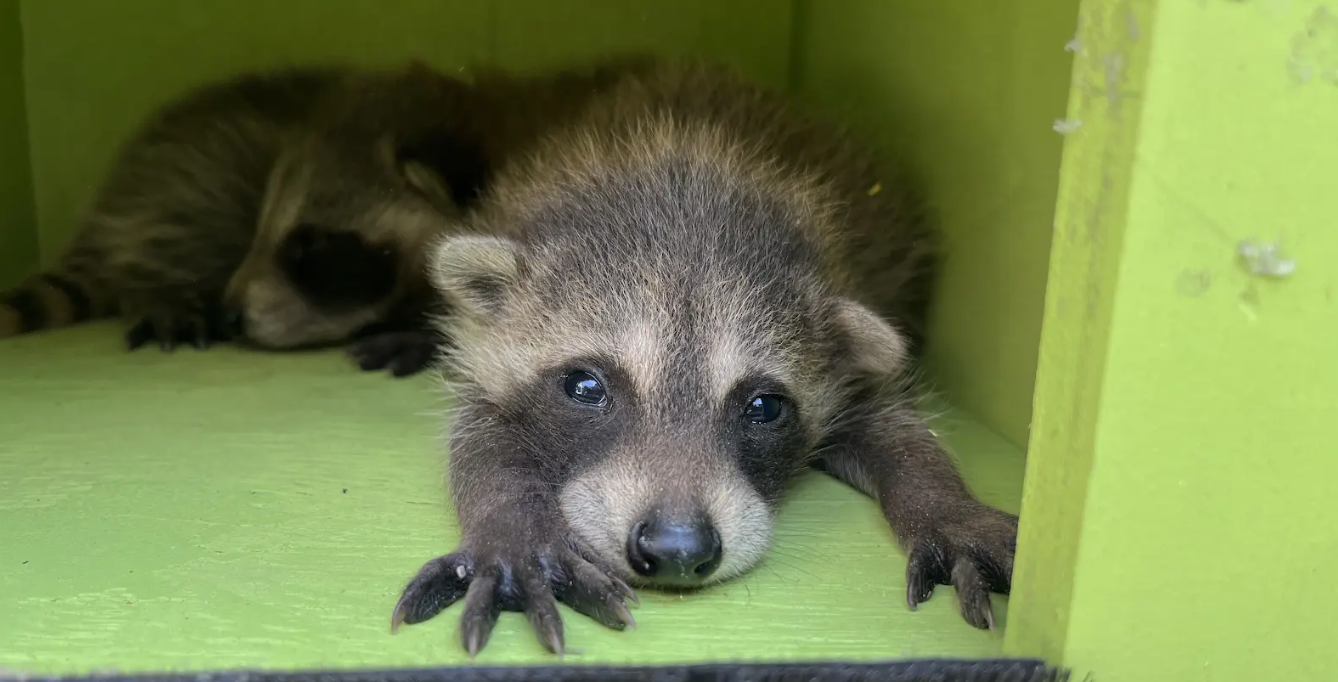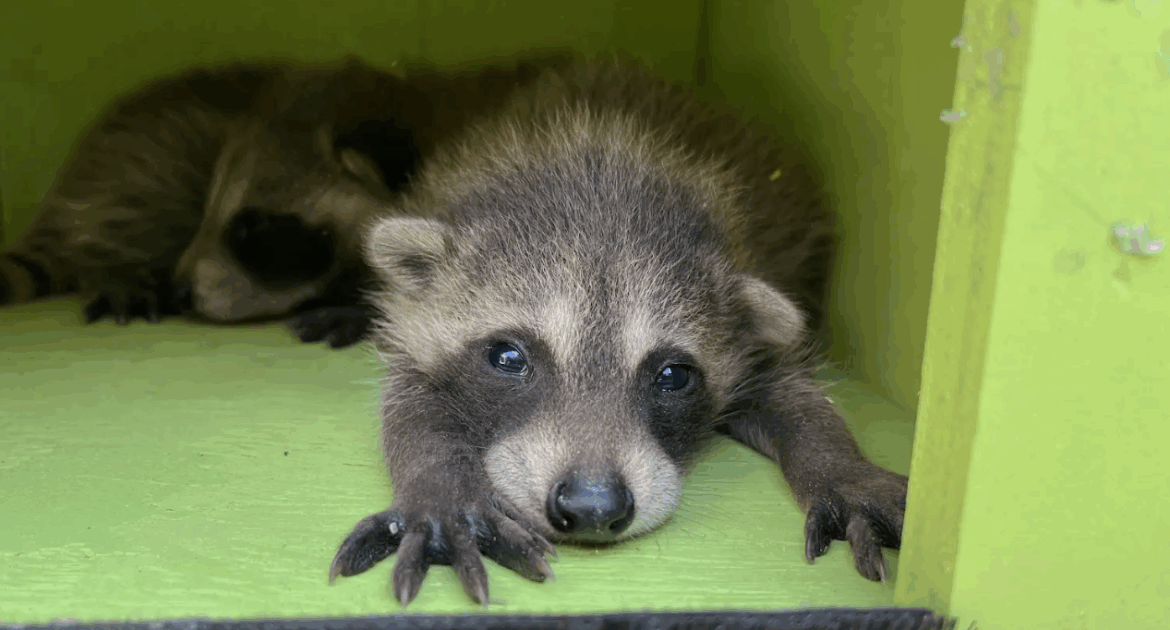Raccoons are notorious for their opportunistic eating habits, which often lead them to rummage through neighborhoods for a snack. Understanding raccoon diet habits can help homeowners address issues like preventing raccoons in yards and keeping these clever animals from being attracted to food sources on your property. Whether you’re in Pittsburgh or anywhere else, learning effective strategies to deter raccoons is especially useful if you’re tired of finding trash bins overturned or your garden ransacked.
How Raccoons Are Attracted to Food
Raccoons are omnivores, meaning they eat both plants and animal matter, and their diets vary widely depending on availability. These animals are foragers at heart, using their keen sense of touch and impressive dexterity to uncover meals in urban and natural environments alike. Here’s a look at what raccoons are typically drawn to:
- Trash and Leftovers: Improperly secured garbage is an easy target for raccoons. They won’t hesitate to paw through trash bins looking for scraps, from food wrappers to leftover pizza crusts.
- Pet Food: Outdoor pet food bowls can be a big draw for raccoons, especially in backyards where pets are fed at regular times.
- Gardens and Fruit Trees: If you have a garden or fruit-bearing plants, raccoons may see them as a free buffet. Corn, berries, and fallen fruits are just a few of their favorite snacks.
- Bird Feeders: Raccoons have no problem climbing to access bird feeders. Seeds, suet, and other contents are often too tempting to resist.
- Outdoor Compost Piles: Organic food scraps in compost piles can easily lure raccoons to your yard if not contained correctly.
It’s no surprise that urban settings provide raccoons with plenty of food options. Here in Pittsburgh, they’re often seen near neighborhoods with lots of outdoor dining spaces and homes near parks like Frick Park, where there’s an abundance of food waste that wasn’t securely disposed of.
What Homeowners Should Know About Feeding Habits
Raccoons’ eating habits depend on the season. During warmer months, they focus on building fat reserves for the winter, leading them to consume larger quantities of high-fat or high-calorie foods like nuts and protein sources. This means they’ll increase their foraging activities, often at night when it’s quieter.
Why Food Sources Around Homes Attract Raccoons
Once raccoons find a consistent food source on your property, they’re likely to return night after night. This can lead to unwanted consequences, such as property damage or the spread of diseases through their droppings. The best approach is to be proactive in eliminating these attractants, which we’ll cover later in this guide.
Preventing Raccoons in Your Yard
Keeping raccoons out of your yard starts with removing the things that draw them in. Taking these preventative measures can make a big difference:
Secure Your Garbage
Raccoons are known to tip over trash bins and pry open lids in search of meals. To stop this:
- Use garbage cans with tight-fitting lids and secure them with bungee cords if necessary.
- Avoid setting trash bags out on the curb overnight.
- Rinse any food containers before placing them in your recycling bin.
Tidy Up Food Sources
Simple habits around your home can prevent raccoons from finding an easy meal:
- Bring pet food bowls indoors after feeding your pets.
- Regularly clean up fruits and nuts that fall from trees in your yard.
- Opt for bird feeders designed to deter raccoons, such as weight-sensitive feeders. Remove leftover birdseed or consider not using feeders at all if raccoon activity is heavy in your area.
Focus on Gardens and Landscaping
Raccoons love gardens, especially those with soft fruits or vegetables. Here’s how to protect your plants:
- Install fencing around your garden beds.
- Cover vegetable patches with netting to make it harder for raccoons to access.
- Consider planting deterrents like mint or marigolds around your garden, as raccoons dislike their smell.
Eliminate Hiding Spots
Raccoons often use hiding spots to rest safely during the day. To deter them:
- Trim back tree branches that allow easy access to your roof or attic.
- Seal openings in sheds, garages, and crawlspaces.
- Block off areas under decks or porches with durable materials like wire mesh.
Practical Steps for Keeping Raccoons at Bay
For those dealing with persistent raccoon issues, implementing additional strategies can provide relief.
- Inspect your property for possible entry points. Look for gaps in roofing, vents, or areas where raccoons could squeeze through and seal these with heavy-duty materials.
- Use motion-activated deterrents, like sprinklers or lights, to scare off raccoons when they enter your yard at night.
- Clean barbecue grills thoroughly after each use. Raccoons love greasy food remnants, and the smell can draw them in.
- Avoid leaving pet doors open overnight, as raccoons can use them to enter your home.
Keeping raccoons away takes effort and consistency, but it’s well worth it for peace of mind.
Discouraging Raccoons Around Your Home
Raccoons’ adaptable diets mean anything left outdoors can be considered fair game. Since they eat everything from seafood to snacks, homeowners need to keep their properties clear of food odors and easy-access meals.
Some tips to reduce food attractants include:
- Double bagging particularly smelly trash, like seafood or meat remains.
- Storing trash bins in sheds or garages when possible to limit accessibility.
- Using natural repellents, such as a mix of water and vinegar, to clean surfaces raccoons frequent.
For those living in Pittsburgh areas close to open parks, rivers, or streams, vigilance is key. Ensure that group events or outdoor gatherings don’t inadvertently leave food or trash behind.
How to Tell if Raccoons Are Active on Your Property
Signs of raccoon activity can include:
- Tipped-over garbage bins or scatterings of trash.
- Scratch marks on fences, doors, or walls where raccoons may try to climb.
- Droppings in areas where raccoons frequently travel.
- Missing fruits or vegetables from your garden.
- Sounds in your attic or crawlspace during the night.
If you encounter any of these signs, it’s time to take swift action to manage the situation before it escalates.
When to Call Skedaddle for Raccoon Removal
If you notice signs of raccoon activity on your property, it’s important to address the issue promptly to prevent damage or potential health risks. Skedaddle Humane Wildlife Control is here to help when raccoons have entered your attic, shed, or crawlspace, or if they’ve caused disturbances such as property damage or excessive noise. Our professional team uses humane removal techniques to ensure the safety of both your family and the animals. Don’t wait for the problem to worsen—contact Skedaddle at the first sign of raccoon intrusion for reliable and effective wildlife removal services you can trust.
Outsmart the Bandits
Raccoons may be sharp and resourceful, but with the right steps, you can outsmart them easily and keep your home from becoming their regular hangout. Prevention is your best line of defense, and consistent efforts can stop common issues before they arise.
Need help securing your property or identifying potential attractants? Reach out to us at Skedaddle Humane Wildlife Control. Our team is here to ensure your home stays protected, making it less inviting for any unwanted guests. Contact us today to learn more about safeguarding your property!




